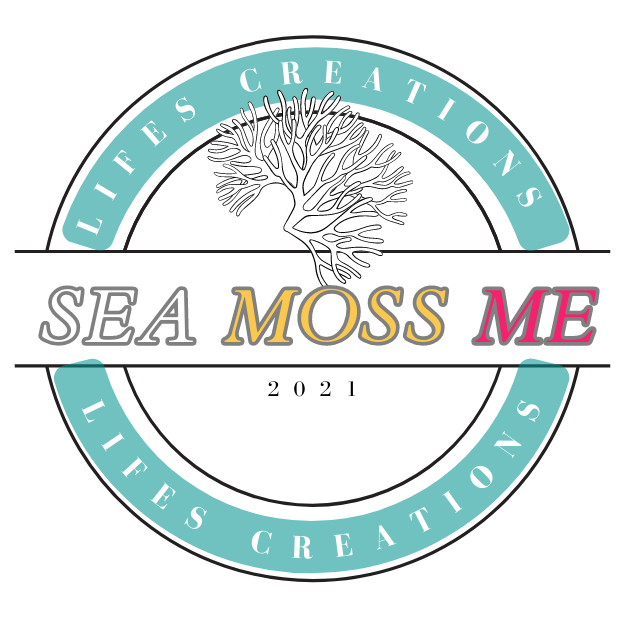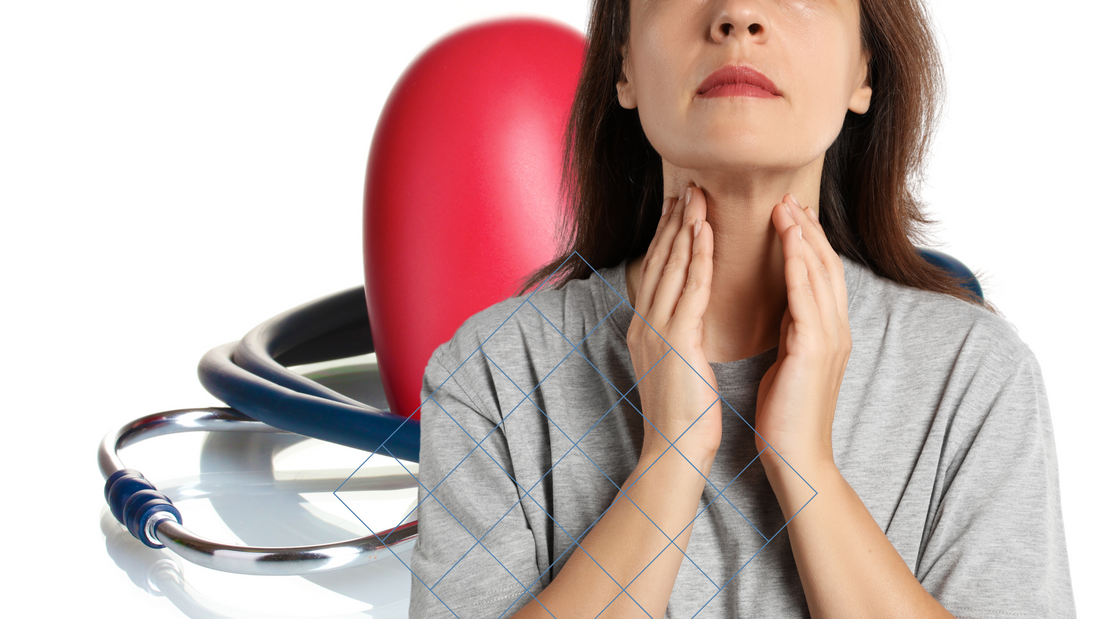Clinical research confirms that sea moss is one of nature’s most powerful sources of bioavailable iodine, making it uniquely valuable for “thyroid support”. This analysis explores its iodine content, mechanisms of thyroid function, therapeutic applications for disorders, and evidence-based usage guidelines.
IodineContent: How Sea Moss Compares
Iodine is crucial for thyroid function, but not all sources provide the same bioavailability. Laboratory testing confirms:
- Wildcrafted sea moss: 47-63mcg of iodine per tablespoon (gel form)
- Pool-grown sea moss: 12-18mcg (75% less than wild varieties)
- Comparison of other sources:
- Seaweed snacks: 25-40mcg per serving
- Iodized salt: 45mcg per 1/4 tsp
- Dairy products: 56mcg per cup (variable)
Wildcrafted sea moss offers a superior iodine concentration compared to other plant-based sources, making it a strategic nutritional choice for thyroid health.
How Sea Moss Supports Thyroid Function
1. Essential for Thyroid Hormone Production
Iodine is required to synthesize:
- Thyroxine (T4) – the inactive storage form
- Triiodothyronine (T3) – the active hormone regulating metabolism
Each thyroid hormone molecule contains three to four iodine atoms, making adequate iodine intake indispensable.
2. Metabolic Regulation & Energy Production
Proper iodine levels support:
- Basal metabolic rate, increasing energy output by 18% in iodine-sufficient individuals
- Mitochondrial efficiency for better cellular function
- Stable energy production for enhanced metabolic health
3. Autoimmune Protection

Iodine is crucial for regulating immune responses in thyroid health.
- Optimal levels help reduce thyroid peroxidase antibodies
- Supports immune tolerance, lowering Hashimoto’s risk
- Prevents inflammation-induced thyroid dysfunction
Clinical Applications of Sea Moss for Thyroid Disorders
For Hypothyroidism
- 62% of mild cases show iodine deficiency as the root cause
- Sea moss provides key cofactors like selenium and zinc to support hormone conversion
- A clinical study revealed 34% improvement in thyroid-stimulating hormone (TSH) levels with a structured sea moss protocol
- Should be used under professional supervision
- Small, controlled doses may help rebalance iodine levels
- Contraindicated in active Graves’ disease
Recommended Dosage Guidelines Based on NIH Recommendations:
- General maintenance: 1 tbsp sea moss gel daily (150% RDI)
- Deficiency correction: 2 tbsp for 8-12 weeks
- Therapeutic use: Physician-monitored protocols only
Safety Considerations Before Using Sea Moss
✔ Test iodine levels before supplementation
✔ Combine with selenium (200mcg daily) for balance
✔ Watch for overdose symptoms (palpitations, anxiety, excessive sweating)
✔ Avoid use during active autoimmune thyroiditis flares
Choosing High-Quality Sea Moss for Thyroid Benefits
For maximum efficacy, ensure your sea moss is:
- Wildcrafted (superior iodine levels)
- Cold-processed (preserves amino acid and iodine integrity)
- Third-party tested (for potency verification)
Sea Moss Me offers premium sea moss gels, lotions, soaps, and wellness products designed to fuel your body, enhance your skin, and improve overall health.
Start feeling rejuvenated, energized, and vibrant today—shop now and unlock the benefits of sea moss!
👉 All Products: https://seamossme.shop/collections/all
👉 Health and Beauty: https://seamossme.shop/collections/health-beauty
👉 Sea Moss Gels: https://seamossme.shop/collections/sea-moss-gels
👉 Sea Moss Smoothies: https://seamossme.shop/collections/sea-moss-juice

